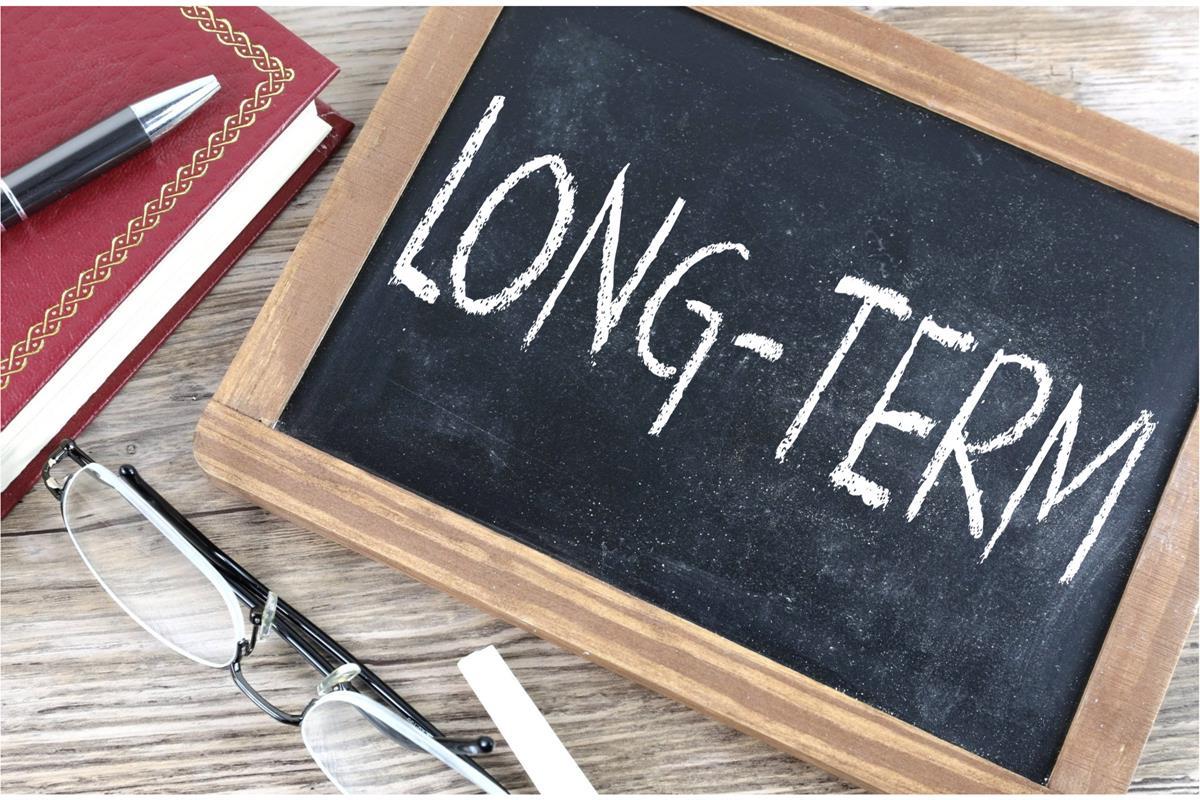Important news: MariaDB 10.11, which just was declared RC, is a long-term maintenance version. The industry standard term to refer to that concept is LTS (as in long-term support), and we too use this term for the releases that get a significantly longer lifetime of bug fixes.
We are announcing MariaDB 10.11 as LTS for a number of reasons:
Firstly, the purpose of an LTS is to reassure users – and, in particular, Linux distros – that a certain version will receive regular updates long-term, for the lifetime of their product.
…
The MariaDB Foundation is pleased to announce the availability of MariaDB 10.11.1, the first release candidate in the MariaDB 10.11 series, and MariaDB 10.10.2 the first generally available release in the short-term MariaDB 10.10 series.
See the release notes and changelogs for details.
Release Notes Changelog What is MariaDB 10.11?
Release Notes Changelog What is MariaDB 10.10?
MariaDB APT and YUM Repository Configuration Generator
Contributors to MariaDB 10.11.1
Addison G
Aleksey Midenkov (MariaDB Corporation)
Alexander Barkov (MariaDB Corporation)
Alexey Botchkov (MariaDB Corporation)
Andrei Elkin (MariaDB Corporation)
Andrew Hutchings (MariaDB Foundation)
Anel Husakovic (MariaDB Foundation)
Angelique Sklavounos (MariaDB Corporation)
anson1014
Brad Smith
Brandon Nesterenko (MariaDB Corporation)
Daniel Bartholomew (MariaDB Corporation)
Daniel Black (MariaDB Foundation)
Daniele Sciascia (Codership)
Dmitry Shulga (MariaDB Corporation)
Elena Stepanova (MariaDB Corporation)
Haidong Ji (Amazon)
Hartmut Holzgraefe (MariaDB Corporation)
Ian Gilfillan (MariaDB Foundation)
Igor Babaev (MariaDB Corporation)
Jan Lindström (MariaDB Corporation)
Julius Goryavsky (MariaDB Corporation)
kurt
Lawrin Novitsky (MariaDB Corporation)
Lena Startseva (MariaDB Corporation)
Luis Eduardo Oliveira Lizardo
Marko Mäkelä (MariaDB Corporation)
Michael Qin (Amazon)
Michael Widenius (MariaDB Corporation and MariaDB Foundation)
Mikhail Chalov
Nayuta Yanagisawa
Nikita Malyavin (MariaDB Corporation)
NTH19
Oleg Smirnov
Oleksandr Byelkin (MariaDB Corporation)
Otto Kekäläinen
Paragoumba
qggcs
rmfalves
Rucha Deodhar (MariaDB Corporation)
sawasa
Sergei Golubchik (MariaDB Corporation)
Sergei Petrunia (MariaDB Corporation)
Thirunarayanan Balathandayuthapani (MariaDB Corporation)
tmokmss
Tuukka Pasanen
Vicențiu Ciorbaru (MariaDB Foundation)
Vladislav Vaintroub (MariaDB Corporation)
Vlad Lesin
Zhibo Zhang
50 Contributors
Contributors to MariaDB 10.10.2
Addison G
Aleksey Midenkov (MariaDB Corporation)
Alexander Barkov (MariaDB Corporation)
Alexey Botchkov (MariaDB Corporation)
Andrei Elkin (MariaDB Corporation)
Andrew Hutchings (MariaDB Foundation)
Anel Husakovic (MariaDB Foundation)
Angelique Sklavounos (MariaDB Corporation)
anson1014
Brad Smith
Brandon Nesterenko (MariaDB Corporation)
Daniel Bartholomew (MariaDB Corporation)
Daniel Black (MariaDB Foundation)
Daniele Sciascia (Codership)
Dmitry Shulga (MariaDB Corporation)
Elena Stepanova (MariaDB Corporation)
Haidong Ji (Amazon)
Ian Gilfillan (MariaDB Foundation)
Igor Babaev (MariaDB Corporation)
Jan Lindström (MariaDB Corporation)
Julius Goryavsky (MariaDB Corporation)
kurt
Lawrin Novitsky (MariaDB Corporation)
Lena Startseva (MariaDB Corporation)
Marko Mäkelä (MariaDB Corporation)
Michael Widenius (MariaDB Corporation and MariaDB Foundation)
Mikhail Chalov
Nayuta Yanagisawa
Nikita Malyavin (MariaDB Corporation)
Oleg Smirnov
Oleksandr Byelkin (MariaDB Corporation)
Otto Kekäläinen
qggcs
Rucha Deodhar (MariaDB Corporation)
Sergei Golubchik (MariaDB Corporation)
Sergei Petrunia (MariaDB Corporation)
Thirunarayanan Balathandayuthapani (MariaDB Corporation)
tmokmss
Tuukka Pasanen
Vicențiu Ciorbaru (MariaDB Foundation)
Vladislav Vaintroub (MariaDB Corporation)
Vlad Lesin
Zhibo Zhang
43 Contributors
Thanks, and enjoy MariaDB! …
Continue reading “MariaDB 10.11.1 RC and 10.10.2 GA now available”
MariaDB 10.11.0, our latest preview release, features quite a number of improvements. The one we’ll talk about here is replicate-rewrite-db. This option has become a system variable from 10.11.0 based on MDEV-15530. Before this version it was just an option used by the mariadbd and mariadb-binlog binaries. There have been no behaviour changes with the option; it has simply become a dynamic variable.
How to try out this feature
The fastest way is to take MariaDB 10.11 for a spin in docker / podman (consult the blog mariadb-replication-using-containers) with the following commands:
To start a primary 10.11.0 MariaDB container, clone the directory, navigate to the cloned directory and run the following command:
docker run -d –rm –name mariadb-primary \
-v $PWD/config-files/primarycnf:/etc/mysql/conf.d:z \
-v $PWD/primaryinit:/docker-entrypoint-initdb.d:z \
-v $PWD/log-files-primary:/var/lib/mysql \
-e MARIADB_ALLOW_EMPTY_ROOT_PASSWORD=True \
quay.io/mariadb-foundation/mariadb-devel:10.11
To start the replica/secondary run the command to start the mariadbd process as well as specify the replicate-rewrite-db option on the command line:
docker run -d –rm –name mariadb-secondary-1 \
-v $PWD/config-files/secondary-1:/etc/mysql/conf.d:z \
-v $PWD/secondaryinit:/docker-entrypoint-initdb.d:z \
-v $PWD/log-files-secondary-1:/var/lib/mysql \
-e MARIADB_ALLOW_EMPTY_ROOT_PASSWORD=True \
quay.io/mariadb-foundation/mariadb-devel:10.11 –replicate-rewrite-db=’db1->db2′
Besides specifying the option as a command line argument, you can use a configuration file.
…
Continue reading “replicate_rewrite_db as a system variable in MariaDB”
FOSDEM 2023 is happily once again going to be an in-person event, and MariaDB will be participating as part of the MariaDB, MySQL and Friends devroom. The Call for Papers is now open.
FOSDEM 2023 will take place on Sat 4 to Sun 5 February 2023 at the ULB Solbosch Campus, Brussels, Belgium.
There are some changes in the organization to previous years. MySQL and MariaDB will each be responsible for its own track, so we will divide the devroom in two sub-tracks.
For the convenience of the speakers and participants, we will not mix the two sub-tracks, and you will have the possibility to follow either track you are interested in, or of course both. …
Continue reading “CfP for the MariaDB, MySQL and Friends devroom FOSDEM 2023 now open”
The MariaDB Foundation is pleased to announce the availability of MariaDB 10.9.4, MariaDB 10.8.6 and MariaDB 10.7.7, the latest Generally Available releases in their respective short-term series (maintained for one year from their first GA release dates), as well as MariaDB 10.6.11, MariaDB 10.5.18, MariaDB 10.4.27 and MariaDB 10.3.37, the latest stable release in their respective long-term series (maintained for five years).
See the release notes and changelogs for details.
Release Notes Changelog What is MariaDB 10.9?
…
I’m going to start this blog post by saying that I made a mistake, a mistake that means all of the metrics blog posts so far have been made with erroneous data. As part of our openness value I will give a post-mortem of the issue here.
Metrics generation
Before we look into what went wrong, I first need to give a bit of background. The commit metrics are generated using a tool called “gitdm”, this is a “Git Data Miner” that was designed to generate commit statistics for the Linux Kernel. Our fork of this is in the metrics repository which includes some customisations that fit MariaDB Server’s needs better.
…
Yes, it is a bit of a click-bait title, but in this case running one SQL command did improve a community user’s performance by that much. It could help you too.
The story
A community user posted in a couple of places that when migrating a large WordPress installation to MariaDB that they were seeing a certain query performing terribly. The query was taking 1.5 seconds to execute and it was clear from the explain plan that the optimizer was not making an ideal decision about the join order.
The query was generated by WordPress so it would not be easy to force an index, or rewrite the query.
…
Continue reading “This one trick can make MariaDB 30x faster!”
MariaDB 10.11.0, our latest preview release, features quite a number of improvements. The one we’ll talk about today is GRANT … TO PUBLIC.
Background
MariaDB has quite a complex privilege system. Most of it is based on the SQL Standard spec; however we do have some specific MariaDB extensions. GRANT … TO PUBLIC (MDEV-5215) is a standard feature that is now available as a preview in MariaDB 10.11.0. It is related to ROLES and DEFAULT ROLE, but it covers a different use case.
ROLES are effectively “privilege packages” that you can enable and disable as a user.
…


